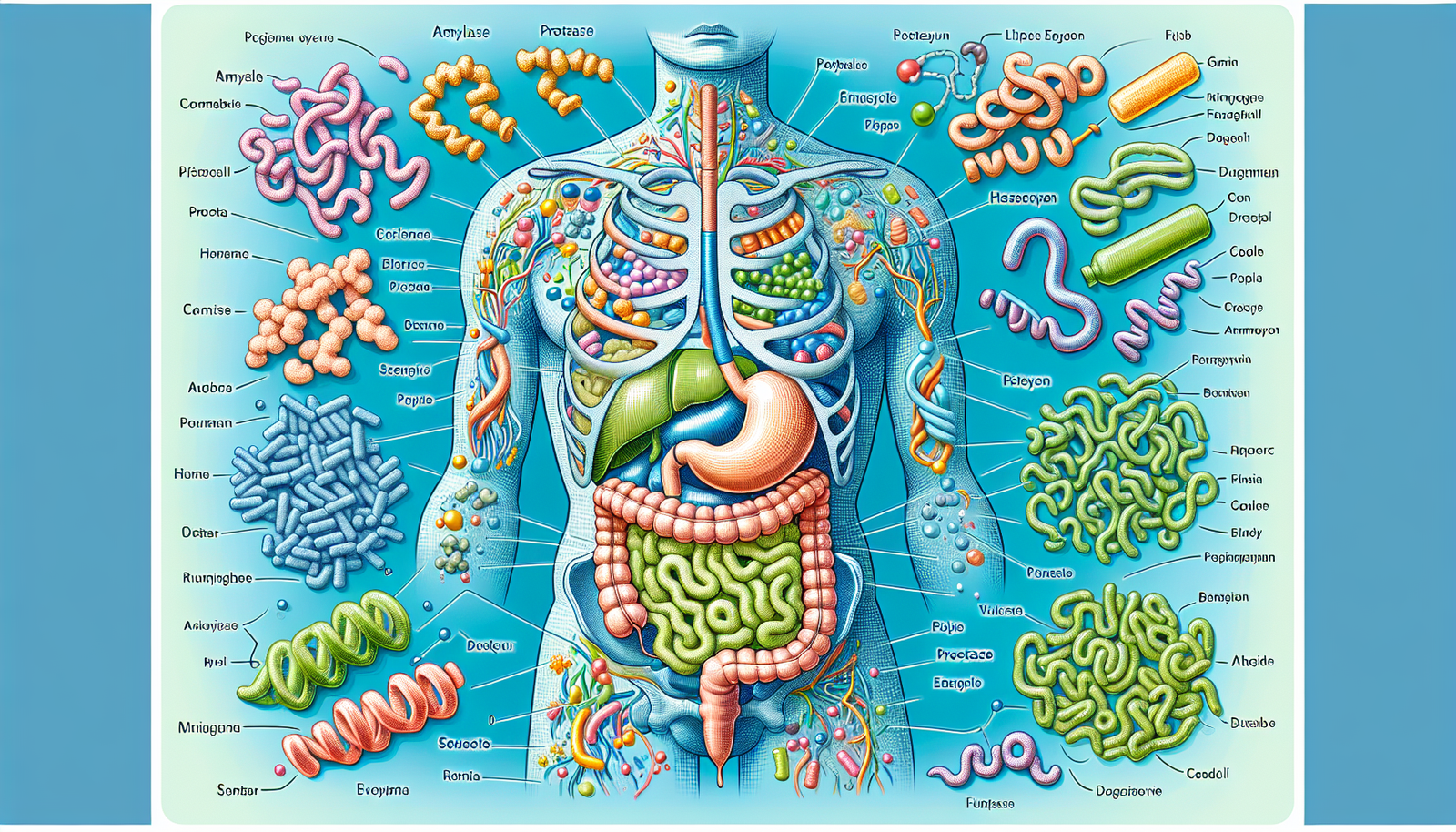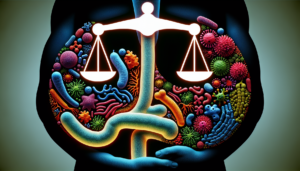Is Your Gut Flora Making You Sick? Signs and Symptoms to Watch For
Is Your Gut Flora Making You Sick? Signs and Symptoms to Watch For
Understanding Gut Flora
Gut flora, or gut microbiota, refers to the diverse community of microorganisms living in your gastrointestinal tract. These bacteria, fungi, viruses, and other microorganisms play a crucial role in your overall health, impacting digestion, immune function, and even mental well-being. Healthy gut flora is essential for nutrient absorption, metabolism, and protection against pathogens.
When an imbalance occurs in this ecosystem—referred to as dysbiosis—it can lead to numerous health issues. Factors contributing to dysbiosis include a poor diet, antibiotic overuse, stress, and lifestyle choices. Recognizing the signs and symptoms of imbalanced gut flora is vital for maintaining your overall health.
Signs Your Gut Flora May Be Off Balance
-
Digestive Issues
- Bloating and Gas: Excess gas and bloating can indicate that the gut flora is not functioning optimally. Overgrowth of certain bacteria may ferment food improperly, creating excess gas.
- Constipation or Diarrhea: Dysbiosis may result in either constipation or diarrhea. A balanced microbiome helps regulate bowel movements, while imbalances may disrupt this process.
- Heartburn and Indigestion: Imbalances in gut bacteria can lead to increased acid production, resulting in heartburn and indigestion symptoms.
-
Food Intolerances and Allergies
- Increased Sensitivity: An unhealthy gut lining, affected by poor flora, may lead to food intolerances. When the gut barrier is compromised, harmless food particles can enter the bloodstream, triggering immune responses.
- Allergy Symptoms: Imbalances might also exacerbate allergic reactions. A diverse gut flora can help modulate the body’s immune responses, while a lack of diversity can lead to heightened sensitivities.
-
Skin Problems
- Eczema and Psoriasis: Conditions like eczema and psoriasis may stem from gut issues. A healthy gut flora plays a role in reducing inflammation, thus a dysbiotic state could contribute to skin flare-ups.
- Acne: Some studies link acne to gut bacteria imbalances due to their influence on hormone levels, inflammation, and the immune response.
-
Chronic Fatigue and Sleep Disorders
- Fatigue: An unhealthy gut can affect nutrient absorption and energy production, which may lead to chronic fatigue.
- Sleep Issues: Gut health is intricately linked to sleep due to the production of neurotransmitters like serotonin. An imbalance in gut flora can disrupt sleep patterns and lead to insomnia.
-
Mood Swings and Mental Health Issues
- Anxiety and Depression: The gut-brain axis illustrates how gut health influences mental well-being. Dysbiosis can lead to reduced serotonin levels, potentially resulting in anxiety and depression.
- Increased Stress Response: An imbalanced gut flora may heighten the body’s stress response, making it harder to cope with daily pressures.
-
Frequent Infections
- Weakened Immune Response: A significant portion of your immune system resides in the gut. Dysbiosis can compromise immunity, leading to an increased susceptibility to infections.
- Cold and Flu: Increased frequency of common illnesses like colds or flu may signal that your gut flora is not supporting your immune system effectively.
-
Weight Changes
- Unexplained Weight Gain or Loss: Gut bacteria can influence body weight by impacting metabolism and fat storage. Disruption in the gut flora may alter these processes, resulting in unexpected weight changes.
- Autoimmune Conditions
- Flare-ups of Autoimmunity: A compromised gut microbiome may contribute to the development of autoimmune diseases. When the gut barrier is weak, it can cause systemic inflammation, triggering autoimmunity.
What Causes Dysbiosis?
Understanding the causes of gut flora imbalances is crucial for effective management. Several factors may contribute to dysbiosis:
-
Antibiotic Use: Antibiotics can drastically reduce the diversity of gut flora, leading to imbalances. Over time, this can result in the overgrowth of harmful bacteria like Clostridium difficile.
-
Diet: A diet high in processed foods, sugar, and unhealthy fats can harm gut health. Lack of fiber-rich foods inhibits the growth of beneficial bacteria.
-
Stress: Chronic stress impacts the gut microbiome by altering digestion and promoting inflammation.
-
Lack of Sleep: Poor sleep patterns can negatively influence gut health, creating a cycle of dysfunction.
- Sedentary Lifestyle: Regular physical activity promotes a diverse microbiome, while a sedentary lifestyle may contribute to imbalances.
Maintaining Healthy Gut Flora
To counteract dysbiosis, several lifestyle changes can help restore balance and promote a healthy gut flora:
-
Dietary Adjustments
- Increase Fiber Intake: Foods high in fiber nourish beneficial gut bacteria. Incorporate whole grains, fruits, vegetables, and legumes into your diet.
- Include Probiotics and Prebiotics: Probiotic-rich foods like yogurt, kefir, sauerkraut, and kombucha can introduce beneficial bacteria. Prebiotics, found in garlic, onions, and bananas, feed these bacteria.
-
Limit Sugar and Processed Foods
- Reducing sugar intake can help curb the growth of harmful bacteria. Opt for whole, unprocessed foods that support gut health.
-
Stay Hydrated
- Drinking ample water supports overall digestion and nutrient absorption, keeping the gut functioning optimally.
-
Manage Stress
- Engaging in stress-reduction techniques such as mindfulness, yoga, or deep-breathing exercises can positively impact gut health.
-
Regular Exercise
- Consistent physical activity promotes a diverse gut microbiome. Aim for at least 150 minutes of moderate exercise each week.
-
Get Enough Sleep
- Prioritize quality sleep to support gut health and overall well-being, aiming for 7-9 hours per night.
-
Limit Antibiotics
- Use antibiotics only when necessary and under medical supervision. Discuss alternatives with your healthcare provider.
-
Incorporate Fermented Foods
- Adding foods like kimchi, miso, and pickles can enhance the diversity of healthy bacteria in your gut.
- Consider Supplements
- For those struggling to maintain gut flora, probiotic supplements may be beneficial. Consult with a healthcare professional for personalized advice.
When to Seek Professional Help
If you notice persistent symptoms indicating potential gut flora imbalance, it may be time to consult a healthcare professional. A doctor can conduct tests to assess gut health and provide personalized recommendations. Conditions such as irritable bowel syndrome (IBS), inflammatory bowel disease (IBD), and other gastrointestinal disorders may require specialized treatment to restore balance.
Final Thoughts
Understanding your gut flora and its impact on your health is crucial. By recognizing the signs of imbalance and adopting healthy lifestyle habits, you can promote a flourishing microbiome that supports both physical and mental well-being.







